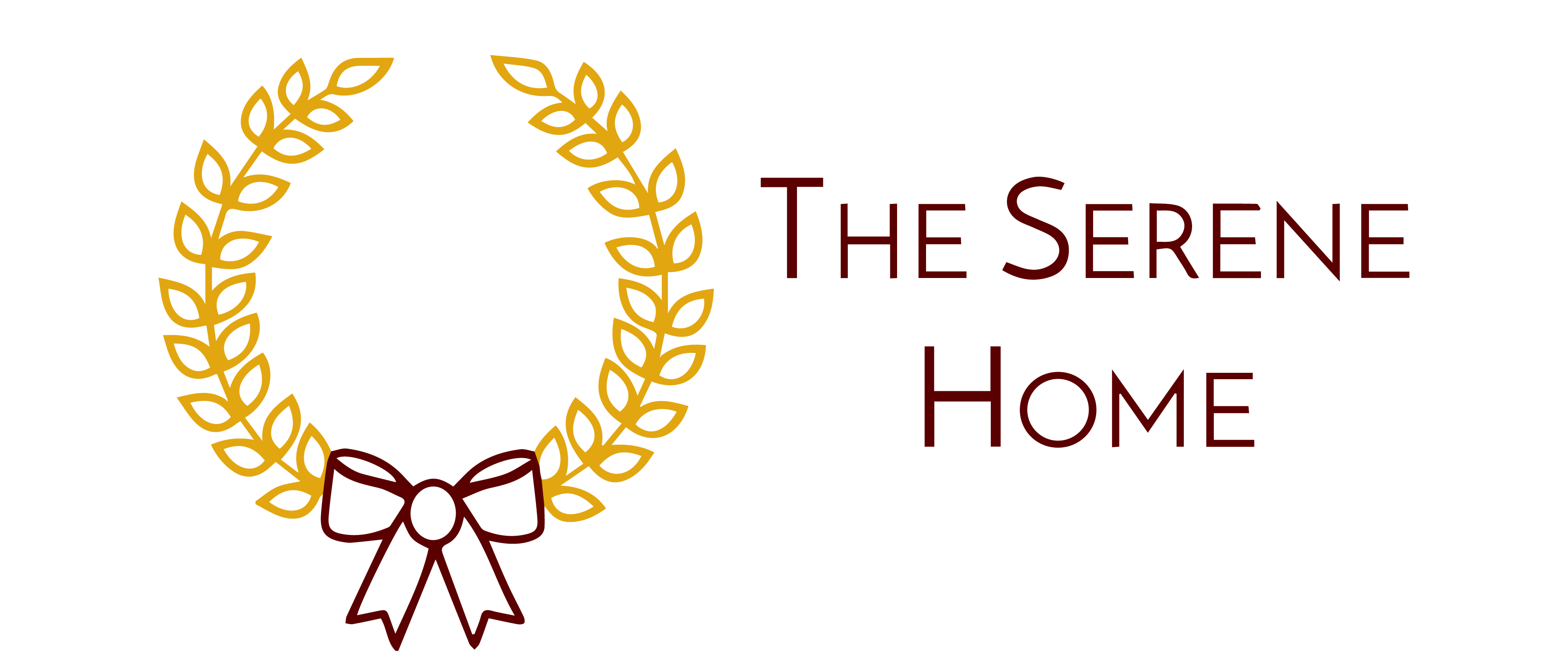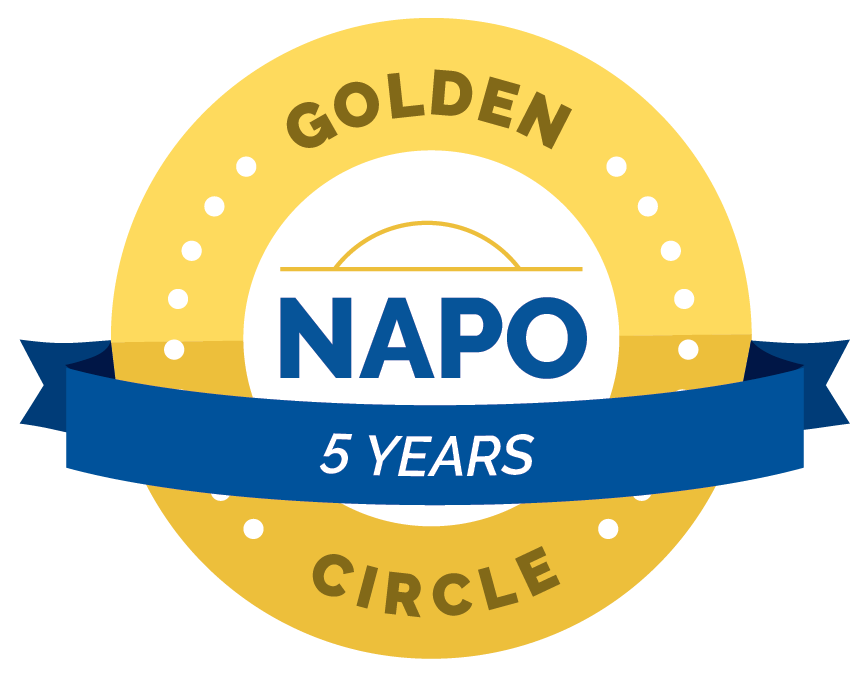TSH Writes About...
Impact
Emotional impact of clutter
and how to get started resolving it - PART THREE
Once you are ready to move forward, it’s time to take a look at what is going on around us that is driving our feelings. This is the beginning of working through what is keeping you stuck and repeating the same patterns over and over again.
For the purposes of this work, and because we are looking at environmental factors that cause stress and anxiety, we will focus on the organization of objects in your home and work environments, although this exercise could also be applied to relationships, both personal and professional, applied to your health practices and applied to how you allocate your time. In time, once you have mastered your home and work environments, you will find that you do apply these principles to other areas of your life.
Let’s start by considering some common drivers of the feelings we have about disorganization.
- You are embarrassed about how your home looks. You don’t want anyone to see how you live. You imagine that everyone that sees your home has a home that is much more beautiful, spacious and luxurious than yours. Pretending that you live in a well-functioning home is so exhausting.
- You feel so ashamed that you just make jokes about how disorganized you are. Your friends, family and colleagues have heard your jokes about how disorganized you are so often that it’s now part of your identity.
- When you do have a block of time that could be used to manage the piles of paper on your dining room table, you feel anxious about how to even decide what to keep or toss. You feel scared about what is there that you might have overlooked. So you just go do something else, or zone out in front of the TV with a snack.
- You feel anger at yourself for letting your pile of clean clothes go so long without folding that they are too wrinkled to wear or have gotten soiled and they have to be cleaned again.
- The guilt you feel about the number of food containers on your counters is so painful that you just pretend they aren’t there.
- Keeping things organized feeling pointless and hopeless. Everything just gets messy again. It’s all hopeless.
- You feel frustrated and angry at the other people in your home add to the disorganization. They don’t care, why should you? Why don’t they respect your home? Why don’t they help? Why do they expect you to take care of all this? How dare they get frustrated with you when they can’t find something.
- You are discouraged that your home will just never be organized because you lack closets or shelves and it’s just depressing to think about the failings of your home. You feel stuck and with no way out unless you move and start over again.
- Apprehensive that if you spend time sorting, editing and organizing, other things such as work and your family will get neglected. You don’t have time for this.
- You feel hopeless about keeping a tidy home when so many other things are occupying your thoughts. You barely have the emotional space to focus on things that are troubling you and your family, let alone the strength to organize things.
- You are overwhelmed with grief and loss about family and friends who have died or who are no longer with you: the lost loves and lost friendships of the past. These hurts keep you from wanting to look at things that will remind you of happier times.
- You feel Shame and anger toward yourself, self-loathing, about the clothes in your closet that don’t fit because you can’t lose the weight you need to lose. You refuse to buy clothes that fit and you refuse to take the ones that are too tight out of the closet. You punish yourself by wearing only the few things you own that fit.
- You feel so embarrassed by how you look in the few clothes that do fit, and that you wear over and over again, that you have started neglecting your hair and grooming because, who cares? Looking sloppy is a way of punishing yourself.
- You resent the things you bought that didn’t work or that were a waste of money because they didn’t live up to expectations. You spent the money, so you are just going to keep them even if you aren’t using them.
- All the excess stuff is costing you in time and peace of mind, but at least it’s familiar and you are used to it. Getting organized just feels like so much work. As long as things are messy, they can stay messy. If you organize things, you’ll have to keep it up or feel as though you have failed yet again.
- You feel if you get organized, how long would it last? You are too tired to keep it up every day.
- You feel guilty when you wake up on a day off when you don’t want to spend time tidying up the house but instead of having fun with your day, you watch TV.
- You wake up feeling sad and discouraged knowing that this day is going to be just like all the other days: Messy and frantic.
These emotions: fear, shame, anger, anxiety and doubt, along with many others are the things we integrate into our belief system and they become familiar, they become who we are. We feel them physically. They keep us stuck and unable to move forward.
We know that our disorganization-of time, attention and space-is keeping us from being the person we want to be, the person we KNOW we can be. A person living the kind of life that supports growth and wellbeing. A person with a home that feels restful, peaceful and serene.
It’s a vicious cycle. Overwhelmed, tired, powerless, drained of any resolve to make changes. We continue doing what we are doing. Stacking the mail, stacking books and bags on the kitchen counter, piling clothes on the ironing board, buying bins to hide unused toys in the garage, putting new cans of food in front of the old cans of food that we will never use, adding another holiday’s worth of scented candles to last year’s scented soaps. Afraid we will lose something, need something or miss something.
Clutter fills our home chaos. All our efforts seem to just add to more clutter.
Being an organized person requires not just GETTING organized but STAYING organized. It’s not an action, it’s a state of being. In the same way that eating healthier or exercising consistently is not a singular act, getting organized is the change in ongoing behavior.
Deciding that you are ready to examine your behavior is an act of self care. It means you have the time and energy to stop, for at least a time, and take a look at how you manage your life- at how you are living your life. It’s the ability to make decisions about what you want your days to be like and how you want to spend your time and then make changes that move you in that direction. Self care is giving yourself permission to make mistakes, change course and try something else.
There’s no guarantees. Change is hard. If it was easy, you would already be doing it already. You need a big bold reason to change. The work that lies ahead requires that the thought of living a cluttered life is too painful to bear. The challenge of a different life is worth risking because the alternative is not acceptable.

Getting organized is not easy. It’s not fun. There is no good reason to do it unless staying disorganized for the rest of your life, and passing that mess on to your kids and family, is a future that is more bleak than doing the hard work of getting organized now. Need help getting started? Schedule a Complementary Serenity Call!





